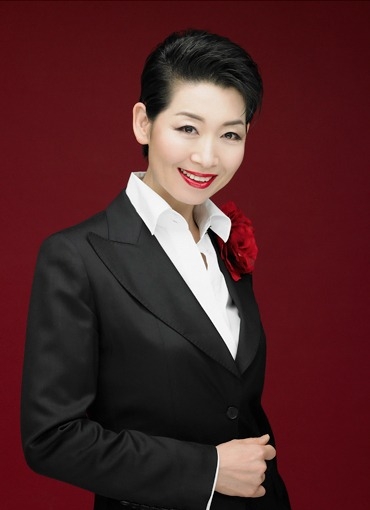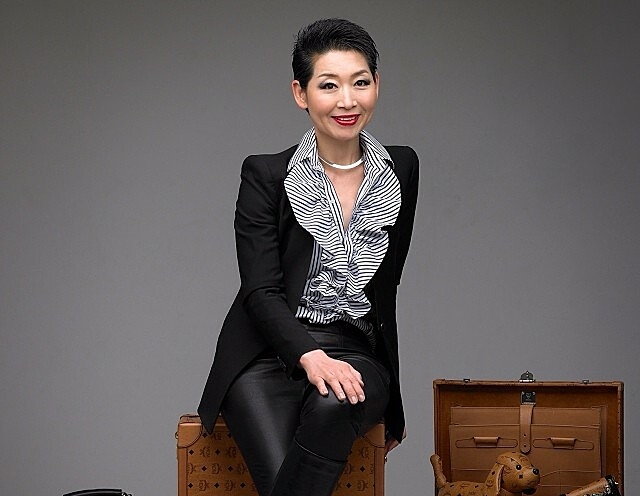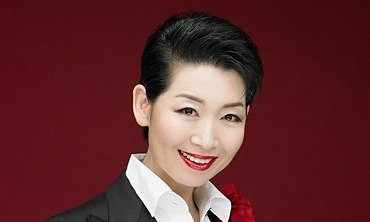Kim, 68, is the youngest daughter of a wealthy, powerful South Korean dynasty controlling a large business conglomerate — and a product of Seoul’s “ppalli-ppalli” or “hurry-hurry” culture.
Raised in privilege, she resisted its constraints. She is the youngest of six children of Kim Soo-keun, chairman of energy conglomerate Daesung. At age three she moved with her family from Daegu to Seoul, where they lived in Donamjang, which was once home to South Korea’s first president. The mansion, built from Chinese oak, was staffed with 10 housekeepers, five drivers and two cleaners.
Raised by a Confucian father and a devout Christian mother, Kim and her sisters were expected to marry into equally wealthy families. She told the U.K.’s Financial Times: “Our duty was to marry into another big family. I knew that lifestyle. It held nothing for me and I rebelled against it.” She was dismayed when her parents disapproved of her two elder sisters excelling academically, fearing it could damage their marriage prospects.
At 21, Kim secretly applied to study sociology at Amherst College in the U.S., enlisting 16 prominent alumni, including former South Korean ministers and ambassadors, to persuade her father. “He couldn’t say no, so he said yes,” she said in a 2012 interview with The Straits Times newspaper of Singapore.

Sungjoo Group Chief Visionary Officer Kim Sung-Joo. Photo courtesy of Sungjoo Group
In the U.S., she worked as a waitress and cleaned restrooms during summer breaks without telling her family, calling it preparation for a “real life.” “The way I was brought up as a tycoon’s daughter was not really me. I needed to break boundaries, and to put myself in a pretty harsh environment to test how far I can go.”
She went on to earn a master’s degree in international relations from the London School of Economics and a master’s in business from Harvard University. In the mid-1980s her parents called her back for an arranged marriage to a wealthy heir. But at Harvard, she had fallen in love with a British-Canadian man. Believing her right to choose a partner had been denied, she refused and instead proposed to him.
They married within a week in a ceremony costing just US$100, with friends providing food, drinks and music. That night she was disowned by her father and left without financial support. For five years her siblings were forbidden from contacting her. “I was like a satellite in orbit that suddenly got into a black hole,” she told The Straits Times. In South Korea’s elite circles, marrying a foreigner was taboo, and she was seen as a threat to her family’s reputation in a society that prized ethnic homogeneity.
Starting from scratch, she worked in the planning department at U.S. department store Bloomingdale under then-chairman Marvin Traub, a family acquaintance who later became her adviser. Her business career took off after she returned to Seoul to recover from illness.
In 1988, after South Korea’s Summer Olympics, the government unexpectedly liberalized luxury imports, and Kim began receiving business offers. In 1989, she borrowed 300 million won (US$216,000) from her father and founded fashion firm Sungjoo Group, according to South Korea’s Maeil Business Newspaper. She secured the Gucci franchise in 1990, followed by other high-profile brands including Sonia Rykiel, Yves Saint Laurent and Marks & Spencer. At its peak, her Marks & Spencer network was the largest franchise in Asia.
The 1998 Asian financial crisis forced her to sell the Gucci license, but she viewed the setback as a turning point. In 2005 she acquired MCM, then a small licensing business with 70 employees. The new MCM chapter focused on an “East meets West” fashion culture and saw the brand resurrected under Korean operation. Today, MCM is Sungjoo Group’s flagship brand, with over 1,200 full-time staff.
Kim repositioned MCM to appeal to younger consumers, hiring former Adidas creative director Dirk Schönberger as global brand director in 2018 and collaborating with global stars like Billie Eilish, Cara Delevingne and Rain.
The brand targets young, globally mobile, brand-conscious shoppers. MCM now operates in 40 countries with 650 stores, including 150 directly managed outlets, generating $500 million annually, with Asia accounting for half the sales.

Chairperson and chief visionary officer of MCM fashion brand Kim Sung-Joo. Photo from Instagram
As chairperson and chief visionary officer, Kim became the first woman to lead a European global luxury business. She acknowledged that her success did not come without challenges. “Growing up in a conservative and patriarchal environment in South Korea, I had to face countless roadblocks on the journey that has led me to where I am today,” she told Forbes.
“Despite these obstacles, I have focused on innovation, technology and growth instead of social norms and limitations to deliver my vision for MCM to become a true smart luxury leader.”
She now aims to prove that a majority female-led organization can succeed globally and plans an “end-to-end digital transformation in retail.” “I will continue working to achieve my and my company’s motto — ‘Succeed to Serve.’”
On the personal front, she reconciled with her father shortly before his death in 2001, after one of her sisters secretly reached out. Her parents eventually accepted her choices and acknowledged her achievements.
She believes leaving the chaebol system, marrying a foreigner and building her own career allowed her to live by her values.
“Life should not be defined by where you were born or by others’ expectations,” she said. “Live so that you have no regrets.”
